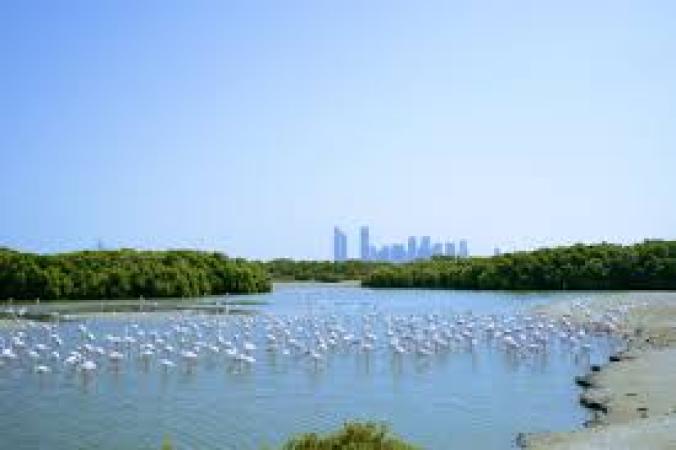Phase one of the project will increase water bodies by 144% and is set for completion by end-2026
Dubai is investing Dh650 million in a major upgrade of the Ras Al Khor Wildlife Sanctuary, one of the city's most important nature reserves. The Dubai Municipality has awarded a Dh100 million contract for Phase One of the redevelopment project, which aims to boost biodiversity, protect fragile ecosystems, and position the sanctuary as a world-class eco-tourism destination.
What to Expect in Phase One – Completion by 2026
Covering 6.4 square kilometres, Phase One will be completed by the end of 2026 and includes:
A 144% expansion of water bodies, increasing total area to 74 hectares
A 60% increase in mangrove coverage (from 40 to 65 hectares)
Planting new mangroves and introducing fresh irrigation channels
Development of ecological features such as Mangrove Lake, North Edge Lake, and reed ponds
Addition of 10 hectares of mudflats, boosting biodiversity and carbon absorption
Creation of a Green Spine for natural connectivity
Regular post-rehabilitation monitoring to ensure sustainability
This phase is expected to deliver major environmental benefits, including a 60% rise in carbon dioxide absorption, contributing significantly to climate resilience.
A Key Initiative in Dubai’s D33 Economic Agenda
This eco-centric transformation aligns with the Dubai Economic Agenda D33, which aims to rank Dubai among the world’s top three global tourism destinations. The sanctuary will serve as a sustainable model for eco-tourism and environmental infrastructure in the region.
Phase Two: Eco-Infrastructure and Visitor Experience
Phase two, to be launched later, will develop core infrastructure and visitor amenities across a 20,000 square metre area. Key highlights include:
A cutting-edge visitor centre highlighting local flora and fauna
Birdwatching towers and environmental education hubs
Restaurants, kiosks, and other recreational facilities
5.6 km of cycling tracks and 3 km of walking trails
23 hectares of landscaped green spaces
Protecting Dubai’s Natural Heritage
Ras Al Khor Wildlife Sanctuary is Dubai’s first Ramsar-listed wetland site, recognized globally for its ecological significance. It hosts nearly 450 species of plants and animals, including 47 hectares of mangroves, and welcomes around 20,000 migratory birds annually, most notably the iconic flamingos.
Eng. Marwan Ahmed bin Ghalita, Director General of Dubai Municipality, said the project highlights Dubai’s vision of becoming the world’s most sustainable and livable city, adding, “We are creating a global model for eco-friendly urban development through biodiversity protection, nature preservation, and sustainable tourism.”

